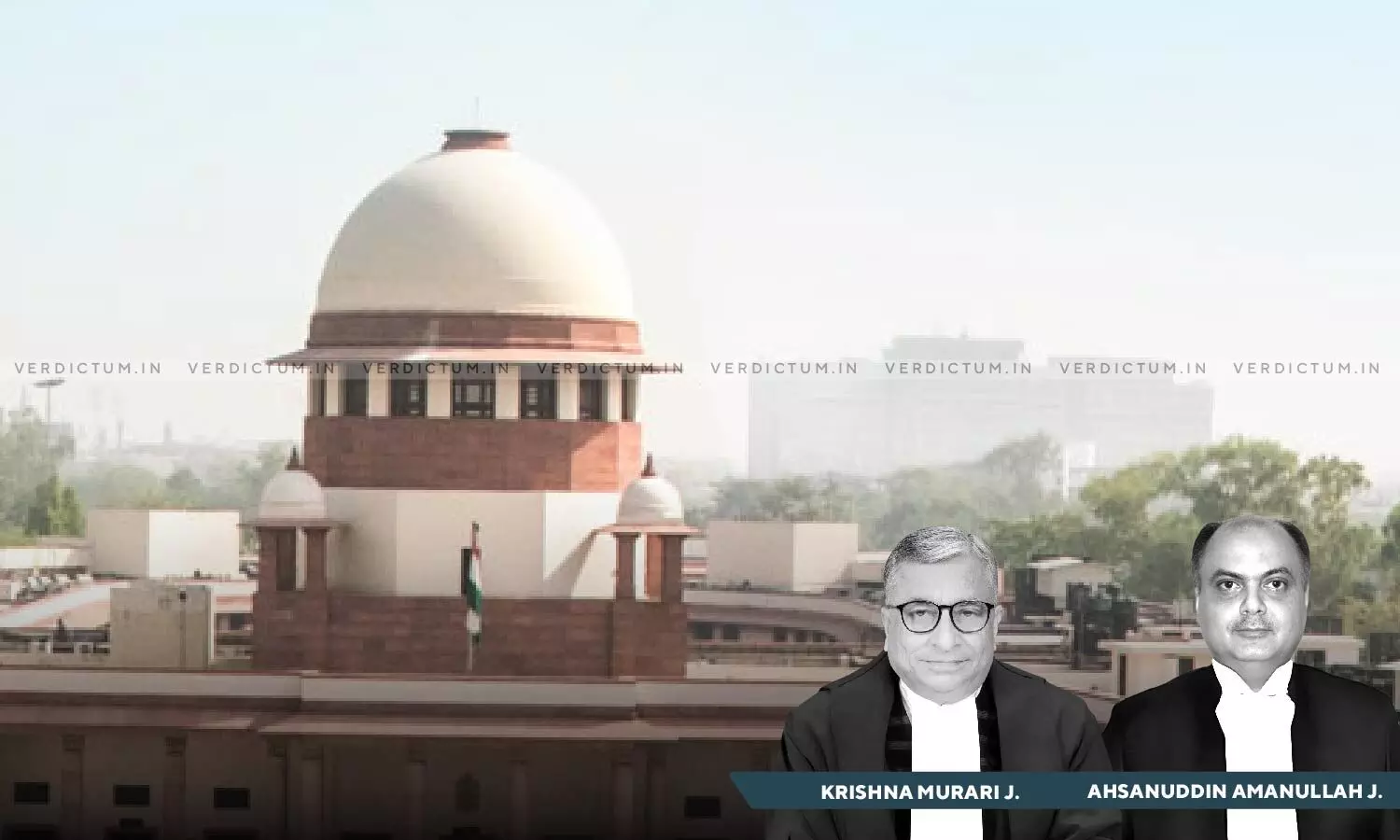
Supreme Court Asks All Courts & Tribunals To Number Paragraphs & To Adopt Uniform Format For Orders & Judgments
 |
|The Supreme Court has suggested all Courts and Tribunals to number paragraphs in all orders and judgments and to adopt a uniform format for judgments and orders.
The Bench of Justice Krishna Murari and Justice Ahsanuddin Amanullah noted that the impugned judgment was no numbered paragraph-wise and observed that “It is desirable that all Courts and Tribunals, as a matter of practice, number paragraphs in all Orders and Judgments in seriatim, factoring in the judgments afore-extracted.”
Advocate Vivek Singh appeared for the appellant and Advocate Swarupama Chaturvedi appeared for the respondent.
The Apex Court referred to the judgment in the case of Shakuntala Shukla v State of Uttar Pradesh, 2021 SCC OnLine SC 672 wherein it has observed that “A judgement should be coherent, systematic and logically organised.”
The Court has also referred to the judgment in the case of State Bank of India v Ajay Kumar Sood, 2022 SCC OnLine SC 1067 wherein the Court has observed that “It is also useful for all judgments to carry paragraph numbers as it allows for ease of reference and enhances the structure, improving the readability and accessibility of the judgments. A Table of Contents in a longer version assists access to the reader.”
Referring to the above precedents, the Court directed the Secretary-General to circulate this judgement to the Registrars General of all High Courts, to place the same before Hon’ble the Chief Justices, to consider adoption of a uniform format for Judgments and Orders, including paragraphing.
The Court further suggested that the Chief Justices may direct the Courts and Tribunals subordinate to their High Courts accordingly as well.
The suggestion was made by the Apex Court in a criminal appeal filed against the impugned judgment of Punjab & Haryana High Court whereby appellant’s writ petition questioning the jurisdiction of the General Security Force Court (GSFC) was dismissed.
The appellant- who was the Commandant in the Border Security Force was charged under Sections 40 and 46 of the Border Security Force Act, 1968 for Civil offence committed in contravention of Section 25 of the Narcotic Drugs and Psychotropic Substances Act, 1985 (NDPS Act) and was found guilty by GSFC and was sentenced to 10 years rigorous imprisonment.
The Apex Court noted that the appellant has served the country for over 31 ½ years without blame or blemish and has received various awards. The appellant’s track record was otherwise unquestionable. Therefore, in absence of direct and cogent evidence against the appellant, the punishment meted out by the GFSC was disproportionate.
Further, the Court said that the appellant was commanding the force operating over a large area, including from where the Jerrycans allegedly moved from the Indian side to the Pakistani side.
“...it would not be out of place to draw an analogy from a situation where a crime occurs under the jurisdiction of the Superintendent of Police and in the criminal proceedings emanating therefrom, some police personnel are held guilty, and thereafter, a criminal case as also departmental proceedings, based on such acts of commissions or omissions, is opened against the said Superintendent of Police, on the premise that such incident transpired under his overall watch and control. This would be an extreme and absurd extension of the principle of dereliction of duty and/or active connivance, in the absence of overwhelming material establishing guilt, or at the very least, negating the probability of his innocence.” remarked the Court.
The Court observed that the appellant could not be labelled as an active partner or facilitator of crime and held “...we reiterate that High Courts, under Articles 226 and/or 227, are to exercise their discretion.
Accordingly, the appeal was allowed and the apellant's conviction and sentence was set aside.
Cause Title- B.S. Hari Commandant v. Union of India
Click here to read/download the Judgment